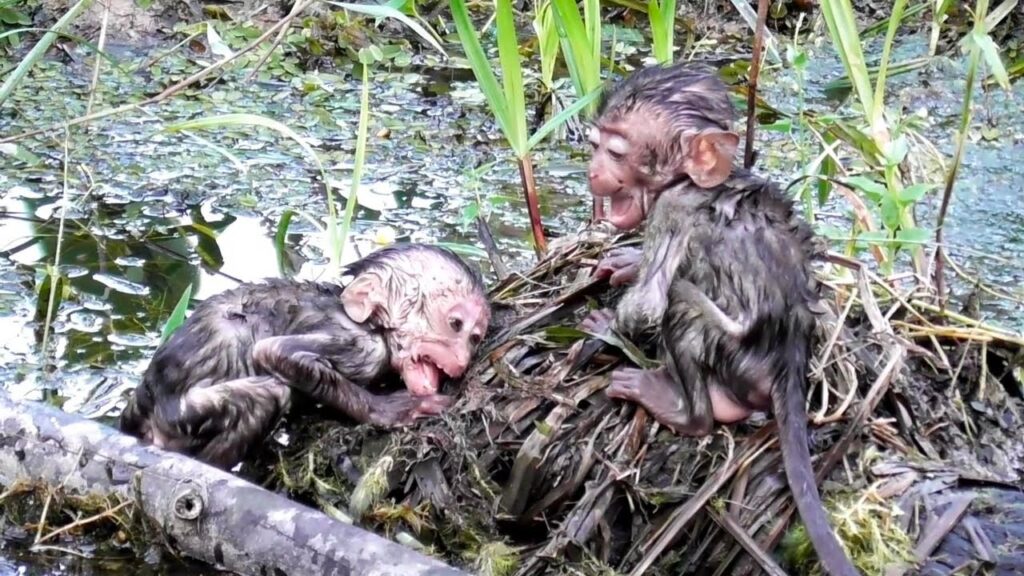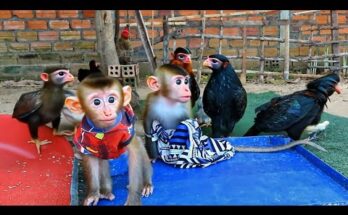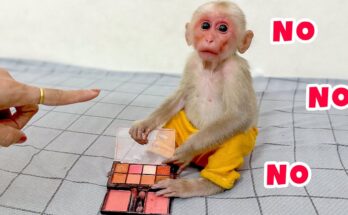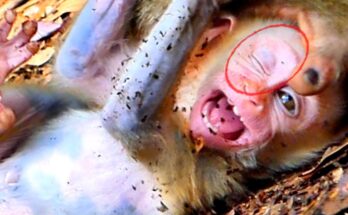
near the edge of a shallow stream. Their tiny bodies shivered from the chill of the morning air, their thin fur damp with dew and splashes of cold water. Their eyes, wide and alert, scanned the riverbed, searching desperately for anything they could eat—fallen fruit, insects, even floating leaves.
These two orphans, likely no more than six months old, had already endured more than most young monkeys their age. Separated from their troop during a recent storm, they had been alone for several days—too small to fend for themselves properly, yet old enough to know the hunger in their bellies was growing sharper by the hour.
Their foraging was clumsy. One pawed at a waterlogged fig, only to find it rotting and inedible. The other dipped its hand into the stream, pulling up nothing but muddy twigs. A few insects darted by, but the babies were too slow and too weak to catch them. Their bones showed slightly through their fur, and their movements were sluggish.
Despite the cold and exhaustion, the two stuck together, relying on each other for warmth and safety. Every time one moved to a new spot, the other followed closely, never straying more than a few feet apart. Their bond, though born out of hardship, was strong—a testament to the deep social nature of monkeys, even at such a young age.
From a nearby ridge, a team of wildlife researchers observed the scene with heavy hearts. “It’s one of the hardest parts of this work,” said Leila Santos, a conservation biologist on the team. “We see animals suffer, and we have to find a balance between letting nature take its course and deciding when to step in.”
Normally, interference is avoided to preserve the wild instincts of the monkeys. But in extreme cases, intervention becomes necessary. And this was quickly becoming one of those cases. The babies were showing signs of hypothermia and malnutrition, and if left alone much longer, they would likely not survive the night.
After careful planning and with great caution, the team approached the young pair later that day. The monkeys were frightened at first but too weak to run far. Gently wrapped in soft towels and warmed by body heat, the babies were taken to a nearby rescue center—one designed to rehabilitate and eventually return monkeys to the wild.
There, they were fed, rehydrated, and given a safe space to recover. Slowly, their energy returned. Their eyes brightened, their fur began to fluff again, and their playful instincts reemerged. Though their journey had started in hardship, it was now guided by hope.
The jungle is wild and unforgiving, but sometimes, kindness finds its way in—just in time.


